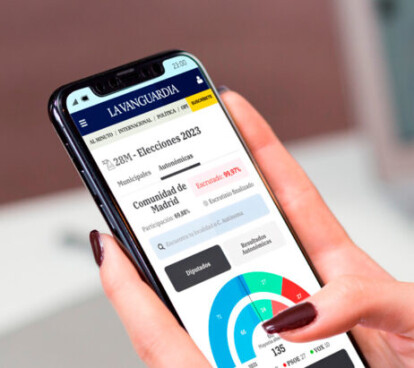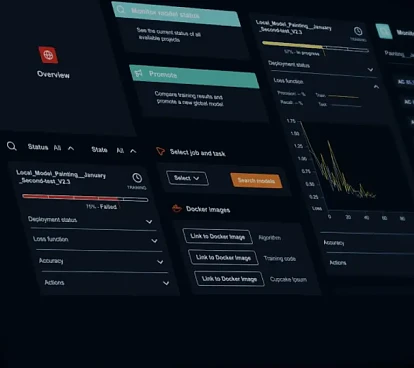
New horizons of the consumer and distribution sector
October 17, 2023
The consumer and distribution sector is still in a stage of uncertainty: consumer habits and customs continue to change, new generations or user profiles emerge making personalization or customer experience more complicated. To this, we must add that the global economy faces a cloudy horizon with persistent inflation and a growing slowdown in activity, rising prices, decreasing consumption, a decline in savings capacity, supply chain issues, and more.
It's not a very promising outlook, but nevertheless, we observe that the retail segment continues to advance, experiment, and innovate to adapt and overcome these external agents that try to slow it down.
Among the topics of concern in this sector, there's a wide variety… Discussions revolve around technologies, trends, processes, and sustainability, among others.
Challenging the retail maze
Companies navigate a green maze to face sustainability challenges. This is an issue that concerns them more and more, as well as their customers and society in general. But this is not only faced by retail companies, but all types of companies and all of us as committed citizens.
There's public awareness, but consumers often need to know how their brands are truly working to be more sustainable, without falling into the dreaded "greenwashing", and how you help them be more sustainable.
But are consumers really willing to assume the extra cost that sustainability entails? If we're more sustainable, can we only sell to consumer niches that are also sustainable?
There are many questions and doubts, but what is clear is that the sustainable development goals (SDGs) for 2030 are on the table, and no company can be left behind.
As you can see, there could be a long list of ideas and actions to carry out, but this is not about knowing the theory well and leaving it just in words… Because from ideas and words, we must move to actions. No one can stand still or be left behind. The planet doesn't deserve it.
Technologies of today, innovations of tomorrow
And we cannot talk about Retail or any type of activity without talking about technology… whether it's the ones that have been used so far or the ones that are glimpsed to be used more in the future. Or what we always ask ourselves when a new technology appears: Will it be a trend or really something that adds value?
But before starting to think about future technologies, we cannot overlook talking about current technologies, the real situation that companies in this sector address.
Technology can harm if not used correctly, or help if we take advantage of all the tools, both the company in its internal processes and the consumer when shopping.
Many companies set up their systems based on technology that is now obsolete, which doesn't allow them to scale or makes them dependent on it. The aim is for technology not to hinder the business and for legacy systems within the company to be replaced or evolved without being an obstacle, while also allowing optimization of infrastructure costs and all kinds of processes (stock management, returns, etc…)
And on top of these systems, which are the basis of the chain, the rest of the pieces are built so that the business thrives and reaches more and more potential customers. But we cannot reach more users if we do not offer them what they need and know them better, and for that, we have Big Data. Data management, effectively and optimally, is a complex process, ranging from how to collect that data to how to use it (both by the user and the process itself, through user knowledge and real-time business information, to ultimately achieve the expected result: offering a better, personalized and unified experience to our customers through omnichannel.
And what about privacy and security for their crucial role in customer trust and loyalty? In the current retail scenario, with a transition towards greater digitalization, online payment security and data protection become crucial. This emphasis on security aligns with regulations such as the General Data Protection Regulation (GDPR), which seeks to guarantee user privacy. On the other hand, the future of cookies is up in the air, with trends pointing towards a more ethical and transparent personalization that respects the consumer's will.
But what about the technologies of the future? There is a lot of talk about Artificial Intelligence, VR/AR, virtual testers, Metaverse… and will these really be the technologies we start using in retail companies in the coming years? Or will they just be passing fads?
What is clear is that technology, whether current or yet to come, must help the business, facilitate and improve the shopping experience for users, without ever forgetting the different types of consumers that exist, each with their peculiar characteristics.
And this is where Artificial Intelligence shines, as all innovation in AI for Retail is focused on one point: the consumer, to improve their experience and have the tools that give the user what they need.
This technology must accompany the customer throughout their entire shopping process, even before and after, that is, throughout the entire customer journey. Not only to enhance the product but to be part of the whole process.
And from the company's point of view, it can be used for aspects such as product improvement, making better decisions regarding product placement, understanding customer behavior, discovering product trends, and personalized recommendations.
And as practical examples, intelligent cameras can be used, based on image recognition, to help the customer make better decisions, facilitate catalog translations using GenAI such as ChatGPT or Midjourney for image generation.
We use AI through famous chatbots in customer service to have a more personalized automatic service 24x7 and 365 days a year, or to provide intelligence to a refrigerator that warns us when a certain product runs out, and to test makeup virtually… and a long list of examples, each more curious or futuristic.
But how do we integrate this technology that still needs many technological improvements into a real business? Can AI make better business decisions than humans?
These, and many other questions, remain to be answered. We don't know what the future holds, it's just a matter of trial and error and seeing what works best for everyone. That's why we see think tanks and sectoral discussions as platforms where these crucial topics are explored in depth, seeking solutions that not only comply with current regulations but also prepare companies for future regulatory updates and consumer privacy expectations.
Our latest news
Interested in learning more about how we are constantly adapting to the new digital frontier?

Insight
November 17, 2023
Bringing Creative Minds Together for Retail Innovation

Insight
July 18, 2023
Propel your electoral coverage with BeatVote

Insight
May 8, 2023
Helping robots learn from each other while keeping client data secure

Insight
January 23, 2023
Optimizing an e-commerce site for Black Friday
